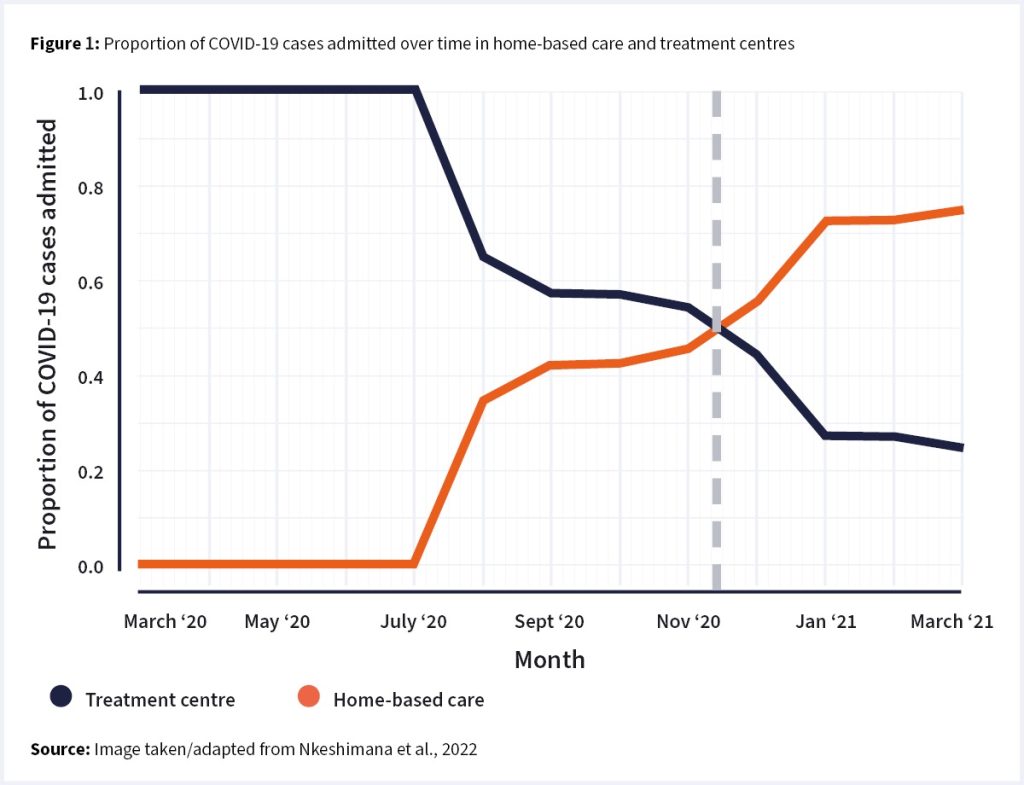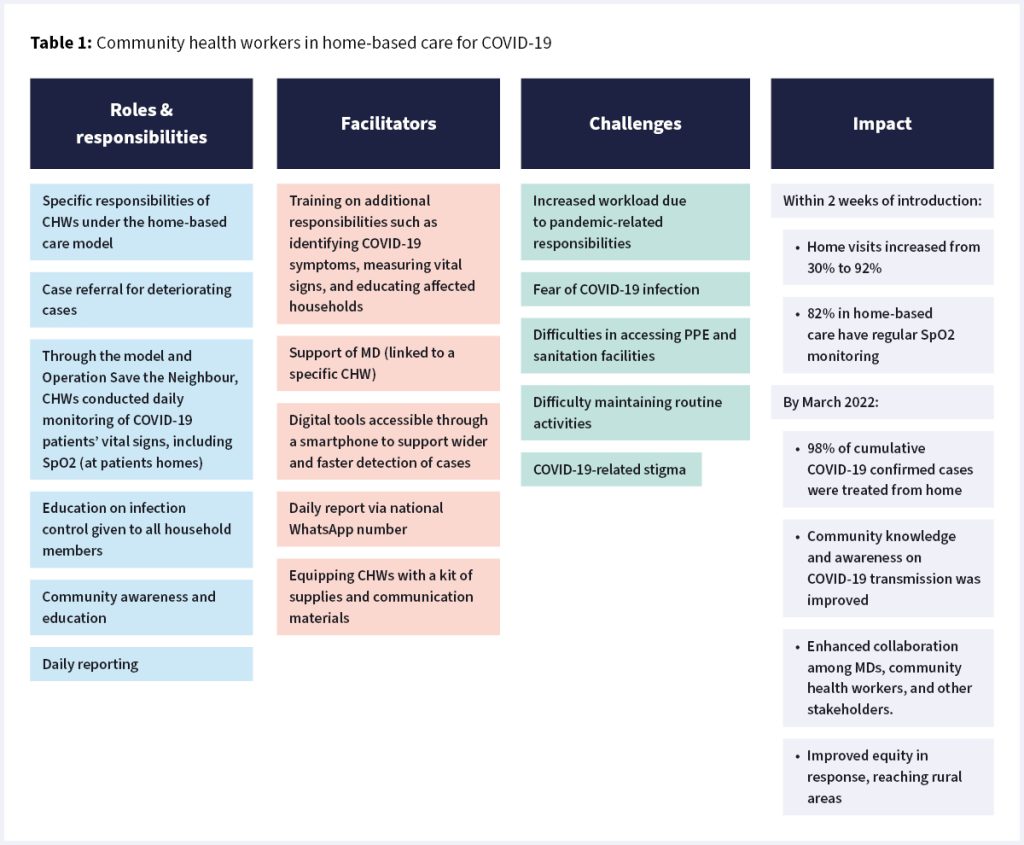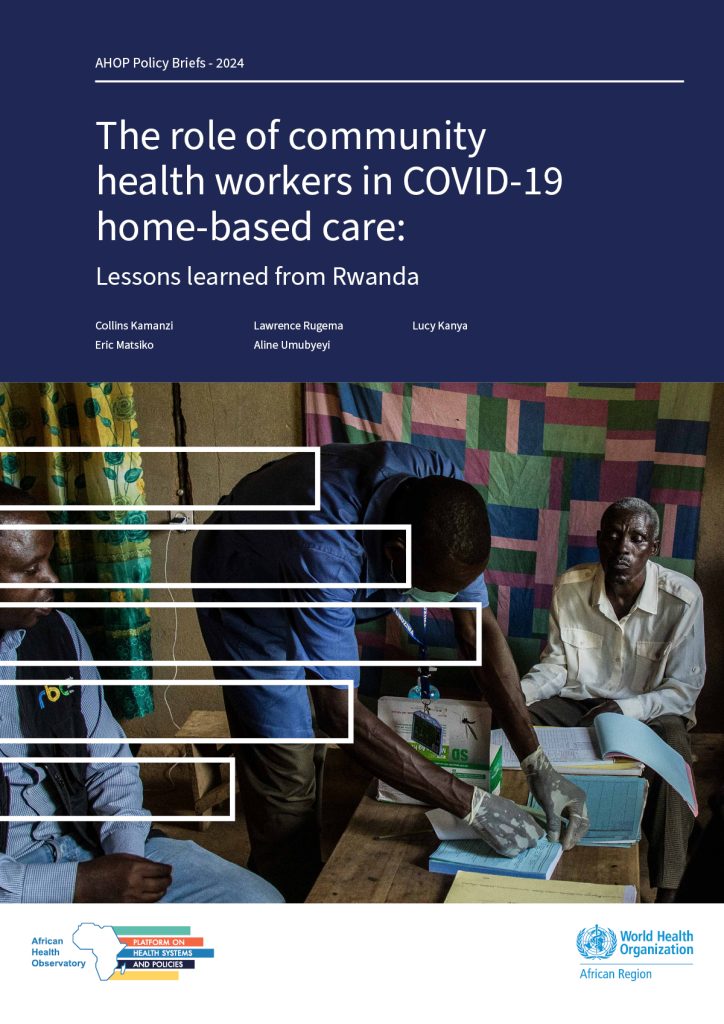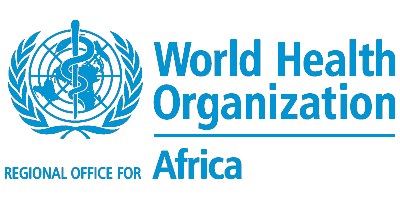AHOP presents its first policy brief from the Rwanda National Centre – School of Public Health, University of Rwanda – titled, “The role of community health workers in COVID-19 home-based care: lessons learned from Rwanda”. The brief provides insight into how the role of community health workers (CHWs) was adapted to respond to the pandemic at the village level, and how this approach can be improved to strengthen the resilience of the health system for future pandemics.
The COVID-19 pandemic posed significant challenges to Rwanda’s health care system, stretching health worker capacity and health facility resources. Therefore, Rwanda introduced a home-based care model in September 2020, where CHWs were trained in the management of mild and asymptomatic COVID-19 cases and played a key role in screening, monitoring, community mobilization, and the recovery of COVID-19 patients, looking after up to 70% of cases.

In 2021, Operation Save the Neighbour – involving collaboration among medical doctors, CHWs, and other stakeholders – was implemented to formalise the delivery of home-based COVID-19 care. The initiative improved pandemic information channels, disease surveillance, and the delivery of care at the village level, which reduced the spread of COVID-19. However, the sustainability of the initiative warrants further analysis, given the country’s low health workforce density.

Operation Save the Neighbour also required the rapid adaptation of CHW roles and responsibilities. Addressing challenges faced in formulating responses to the COVID-19 pandemic – such as inadequate training, psychological impacts, the limited provision of protective equipment, and excessive workloads for CHWs – can improve the approach going forward. A working framework – involving other cadres of health professionals – offers a key solution.
The brief is available to read in English and French, in full length and summary versions:









